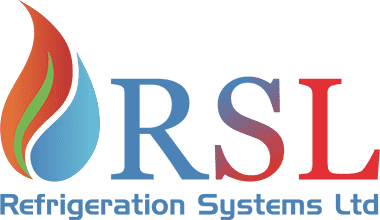
We spend a lot of time in our homes. As a matter of fact, the Environmental Protection Agency (EPA) has approximated being inside comprises 90% of our time. Having said that, the EPA also has determined your indoor air can be three to five times dirtier than outside your home.
That’s since our homes are firmly sealed to boost energy efficiency. While this is great for your utility expenses, it’s not so great if you’re among the 40% of the population with respiratory allergies.
When outdoors ventilation is limited, pollutants such as dust and volatile organic compounds (VOCs) might get trapped. Consequently, these pollutants could aggravate your allergies.
You can improve your indoor air quality with fresh air and regular dusting and vacuuming. But if you’re still having issues with symptoms when you’re at your residence, an air purifier could be able to provide relief.
While it can’t get rid of pollutants that have gotten trapped in your furnishings or carpeting, it could help freshen the air moving around your house.
And air purification has also been scientifically verified to help reduce some allergic symptoms, according to the American College of Allergy, Asthma and Immunology. It could also be appropriate if you or someone in your household has lung trouble, including emphysema or COPD.
There are two options, a portable air purifier or a whole-home air purifier. We’ll discuss the advantages so you can learn what’s appropriate for your house.
Whole-House Air Purifier vs. Portable Air Purifiers
A portable air purifier is for a lone room. A whole-house air purifier works alongside your HVAC unit to clean your full house. Some models can clean on their own when your home comfort unit isn’t on.
What’s the Best Air Purifier for Allergies?
Go after a model with a High Efficiency Particulate Air (HEPA) filter. HEPA filters are placed in hospitals and deliver the best filtration you can get, as they catch 99.97% of particles in the air.
HEPA filters are even more powerful when combined with an ultraviolet (UV) germicidal light. This dynamic blend can destroy dust, dander, pollen and mold, all of which are general allergens. For the greatest in air purification, consider equipment that also has a carbon-based filter to reduce household vapors.
Avoid buying an air purifier that creates ozone, which is the primary element in smog. The EPA advises ozone could aggravate respiratory issues, even when discharged at small settings.
The Allergy and Asthma Foundation of America has created a listing of questions to think over when purchasing an air purifier.
- What can this purifier extract from the air? What doesn’t it take out?
- What’s its clean air delivery rate? (A higher figure means air will be purified faster.)
- How frequently does the filter or UV bulb need to be replaced]? Can I finish that by myself?
- How much do new filters or bulbs cost?
How to Lessen Seasonal Allergy Symptoms
Want to receive the {top|most excellent|best] results from your new air purification equipment? The Mayo Clinic recommends completing other procedures to reduce your exposure to seasonal allergy triggers.
- Stay inside and keep windows and doors sealed when pollen counts are heightened.
- Have other household members cut the lawn or pull weeds, since this work can aggravate symptoms. If you must do this work alone, consider using a pollen mask. You should also rinse off right away and put on clean clothes once you’re finished.
- Avoid stringing up laundry outside your home.
- Use the AC while indoors or while driving. Consider installing a high efficiency air filter in your residence’s heating and cooling unit.
- Balance your house’s humidity percentage with a whole-house dehumidifier.
- Hardwood, tile or linoleum are the ideal flooring types for lowering indoor allergens. If your home has carpet, use a HEPA filter on your vacuum cleaner.
Let Our Pros Handle Your Indoor Air Quality Requirements
Prepared to move forward with adding a whole-house air purifier? Give our specialists a call at 778-693-2532 or contact us online to schedule an appointment. We’ll help you find the best system for your home and budget.
